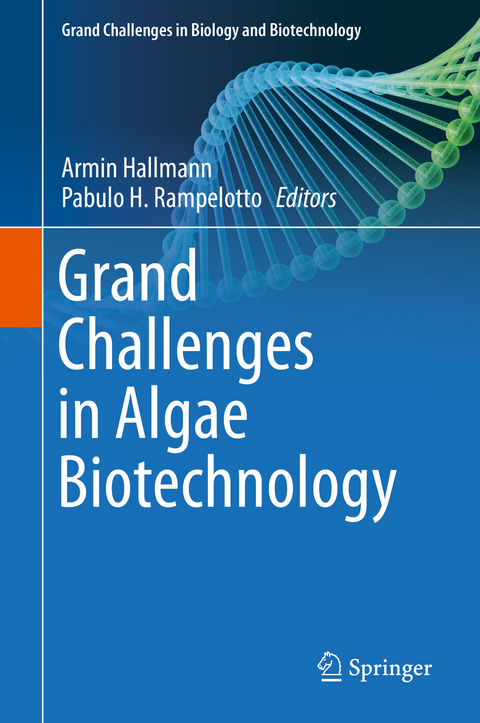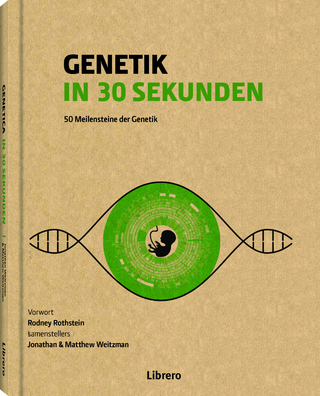
Grand Challenges in Algae Biotechnology
Springer International Publishing (Verlag)
978-3-030-25232-8 (ISBN)
Algae offer great potential to support the building of a bio-based economy and they can contribute new solutions to some of the grand challenges of the 21st century. Despite significant progress, algae biotechnology is yet far from fulfilling its potential. How to unleash this enormous potential is the challenge that the own field is facing. New cultivation technologies and bioprocess engineering allow for optimization of the operation strategy of state-of the art industrial-scale production systems and they reduce the production costs. Parallel to this, new molecular technologies for genetic and metabolic engineering of (micro)algae develop quickly. The optimization of existing biochemical pathways or the introduction of pathway components makes high-yield production of specific metabolites possible. Novel screening technologies including high-throughput technologies enables testing of extremely large numbers of samples and, thus, allow for large scale modelling of biomolecular processes, which would have not been possible in the past. Moreover, profitable production can demand for integrated biorefining, which combines consecutive processes and various feedstocks to produce both transportation fuel, electric energy and valuable chemicals.
Pabulo Henrique Rampelotto is the founder and Editor-in-Chief of the Springer Book Series "Grand Challenges in Biology and Biotechnology". He is also Editor-in-Chief, Associate Editor, Senior Editor, Guest Editor and member of the editorial board of several scientific journals on the field of Life Sciences and Biotechnology. Furthermore, Pabulo is member of four Scientific Advisory Boards of Lifeboat Foundation, alongside several Nobel Laureates and other distinguished scientists, philosophers, educators, engineers and economists. Most of his recent work has been dedicated to the editorial process of several scientific journals in life science and biotechnology, as well as on the organization of special issues and books in his fields of expertise. In his special issues and books, some of the most distinguished team leaders in the field have published their work, ideas and findings, including Nobel Laureates and several of the highly cited scientists according to the ISI Institute. Armin Hallmann is professor and head of the Department of Cellular and Developmental Biology of Plants at Bielefeld University, Germany. Since more than 25 years, he utilizes eukaryotic microalgae as model systems for his research in the fields of developmental biology, molecular cell biology, biochemistry and biotechnology. Before he came to Bielefeld University in 2003, he taught at the University of Regensburg, Germany and at the Washington University in St. Louis, MO, USA. He is author, reviewer and editor of numerous scientific publications (articles, reviews, book contributions) that appeared in international leading scientific journals.
Part 1. Developments in Key Enabling Technologies.- 1. Commercial Microalgal Cultivation Systems.- 2. Operational, Prophylactic, and Interdictive Technologies for Algal Crop Protection.- 3. Heterotrophic growth of microalgae.- 4. Agronomic Practices for Photoautotrophic Production of Algae Biomass.- 5. Advances in Genetic Engineering of Microalgae.- 6. Optimization of microalgae photosynthetic metabolism to close the gap with potential productivity.- 7. Metabolic Engineering and Synthetic Biology Approaches to Enhancing Production of Long-Chain Polyunsaturated Fatty Acids in Microalgae.- 8. Integrated Biorefineries for Algal Biomolecules.- 9. Combining microalgae-based wastewater treatment with biofuel and bio-based production in the frame of a biorefinery.- 10. Microalgal consortia: from wastewater treatment to bioenergy production.- 11. Downstream Green Processes for Recovery of Bioactives from Algae.- Part 2. Framework and Progress of Practical Applications.- 12. Bioactive Compounds from Microalgae and their Potential Applications as Pharmaceuticals and Nutraceuticals.- 13. Metal Pollution in Water: Toxicity, Tolerance and Use of Algae as a Potential Remediation Solution.- 14. Benefits of Algal Extracts in Sustainable Agriculture.- 15. Deriving Economic Value from Metabolites in Cyanobacteria.- 16. European Union Legislation and Policies Relevant for Algae.
| Erscheinungsdatum | 24.01.2020 |
|---|---|
| Reihe/Serie | Grand Challenges in Biology and Biotechnology |
| Zusatzinfo | XV, 591 p. 65 illus., 58 illus. in color. |
| Verlagsort | Cham |
| Sprache | englisch |
| Maße | 155 x 235 mm |
| Gewicht | 1023 g |
| Themenwelt | Naturwissenschaften ► Biologie ► Genetik / Molekularbiologie |
| Naturwissenschaften ► Biologie ► Mikrobiologie / Immunologie | |
| Technik ► Umwelttechnik / Biotechnologie | |
| Schlagworte | Biofuels • Biorefinery • Genetic Engineering • industrial microbiology • Microbial Biotechnology |
| ISBN-10 | 3-030-25232-9 / 3030252329 |
| ISBN-13 | 978-3-030-25232-8 / 9783030252328 |
| Zustand | Neuware |
| Haben Sie eine Frage zum Produkt? |
aus dem Bereich


